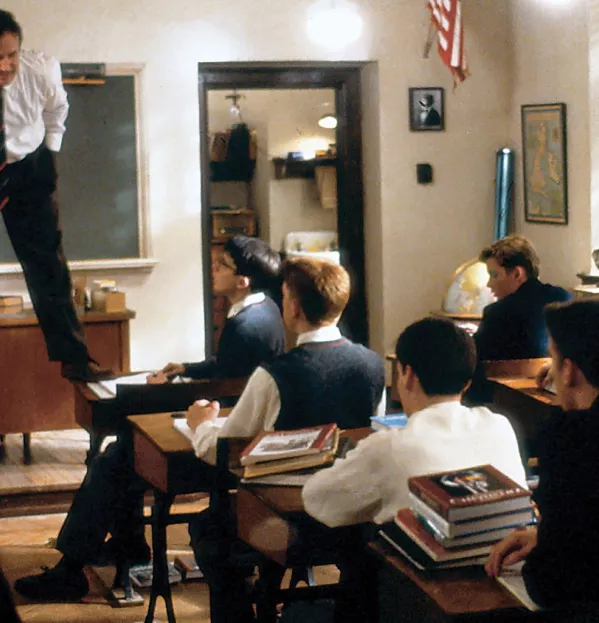Teachers who just want to teach

Many teachers choose not to climb the career ladder up into the ivory tower of senior leadership. For most, their reasons are admirable: they got into teaching to work with children and that’s the way that they want it to stay. And who can knock that as an ambition?
But for these classroom-committed teachers, an inevitable problem arises when their career progression is called into question. How do you keep that teacher moving professionally if the direction of travel is not upwards? This is an issue that school leaders need to consider carefully.
Before an attempt is made to support and motivate teachers who wish to remain in the classroom, their motives (good or bad) must first be understood by those leading them. If a teacher has positive reasons for wanting to remain in the classroom, then it’s almost certain that they are reflective enough to know their own development needs.
When working with these teachers, the main role of a leader is to listen and then facilitate with funding to access necessary training and research, and provide time for them to work on their goals. But what might those goals be?
Must teachers do more?
A common misconception is that in order for teachers to make progress they must do more: take on a school-wide teaching and learning or pastoral responsibility; act in a supportive capacity to other teachers; become part of a working group; get involved in the local area partnership; add extra classes to their timetable.
This list could be endless and some of its options may appeal to some teachers, but must teachers do more to progress? Or should they be doing the same as they’ve always done, but better? What might leaders suggest to teaching colleagues to support them to continually become better teachers?
Teachers could be encouraged, even expected, to:
- Access high-quality ongoing CPD, which has a genuine measurable impact on pupils’ learning. This could be in the form of training events, coaching or literature.
- Access research in order to better understand their current good practice and to provide insight into further opportunities to improve. The idea of evidence-based teaching (rather than experience-based) appears to be enjoying a resurgence; who better to pilot this in schools than those who are already confident in the classroom.
- Try new pedagogical approaches and design the curriculum. Those with a commitment to classroom teaching often have a very good understanding of the needs of the children in their school’s context. As a result they are well placed to assess the needs of the pupils in order to plan and teach responsively. If successful, there are further opportunities for their work to have a wider impact.
- Conduct research to inform their own practice and that of others in the school. Some teachers may even like to undertake this as part of a university accreditation, such as a master’s or a PhD.
- Conduct in-depth data analysis in order to ensure that pupil outcomes are improving as a result of their practice. Although a deep level of analysis is often the reserve of leaders, it should be a key aspect of an experienced teacher’s teaching cycle.
Relighting the fire
However, there are those long-serving teachers at the other end of the scale. The ones who are biding their time until retirement or the work-shy ones who don’t even like being in the classroom, let alone the leadership office. How do we enhance their practice and ensure they don’t stagnate?
The overall aim should be to enable long-serving teachers to be proud enough to say ‘I’m a teacher’
School leaders keen for teachers to make progress may face resistance in such instances. The teacher will need to be inspired to re-engage with their role and, with careful leadership that generates buy-in, any of the above suggestions have the potential to reignite an interest in improving pupil outcomes by way of their own development.
The overall aim should be to enable long-serving teachers who have no desire to be school leaders to, instead of saying “I’m just a teacher”, be proud enough to say “I’m a teacher”. This will be achieved by enhancing their vision of the opportunities that there are for them in the classroom, and by supporting them to continue improving their classroom practice. In harmony with that, we must also encourage them in this drive for progress (rather than question their commitment because they don’t want to “progress” in the accepted way) and acknowledge their contributions by way of recognising achievements and providing monetary incentives.
Baroness Sue Campbell, a former PE teacher, suggests that every member of an organisation should be aiming to improve by at least 0.01 per cent each day in order for a common goal - in our case, excellent outcomes for children - to be achieved. Leaders must seek bespoke ways to support everyone in their school to make that daily step of progress.
Aidan Severs is assistant vice-principal at Dixons Manningham Primary School in Bradford
You need a Tes subscription to read this article
Subscribe now to read this article and get other subscriber-only content:
- Unlimited access to all Tes magazine content
- Exclusive subscriber-only stories
- Award-winning email newsletters
Already a subscriber? Log in
You need a subscription to read this article
Subscribe now to read this article and get other subscriber-only content, including:
- Unlimited access to all Tes magazine content
- Exclusive subscriber-only stories
- Award-winning email newsletters